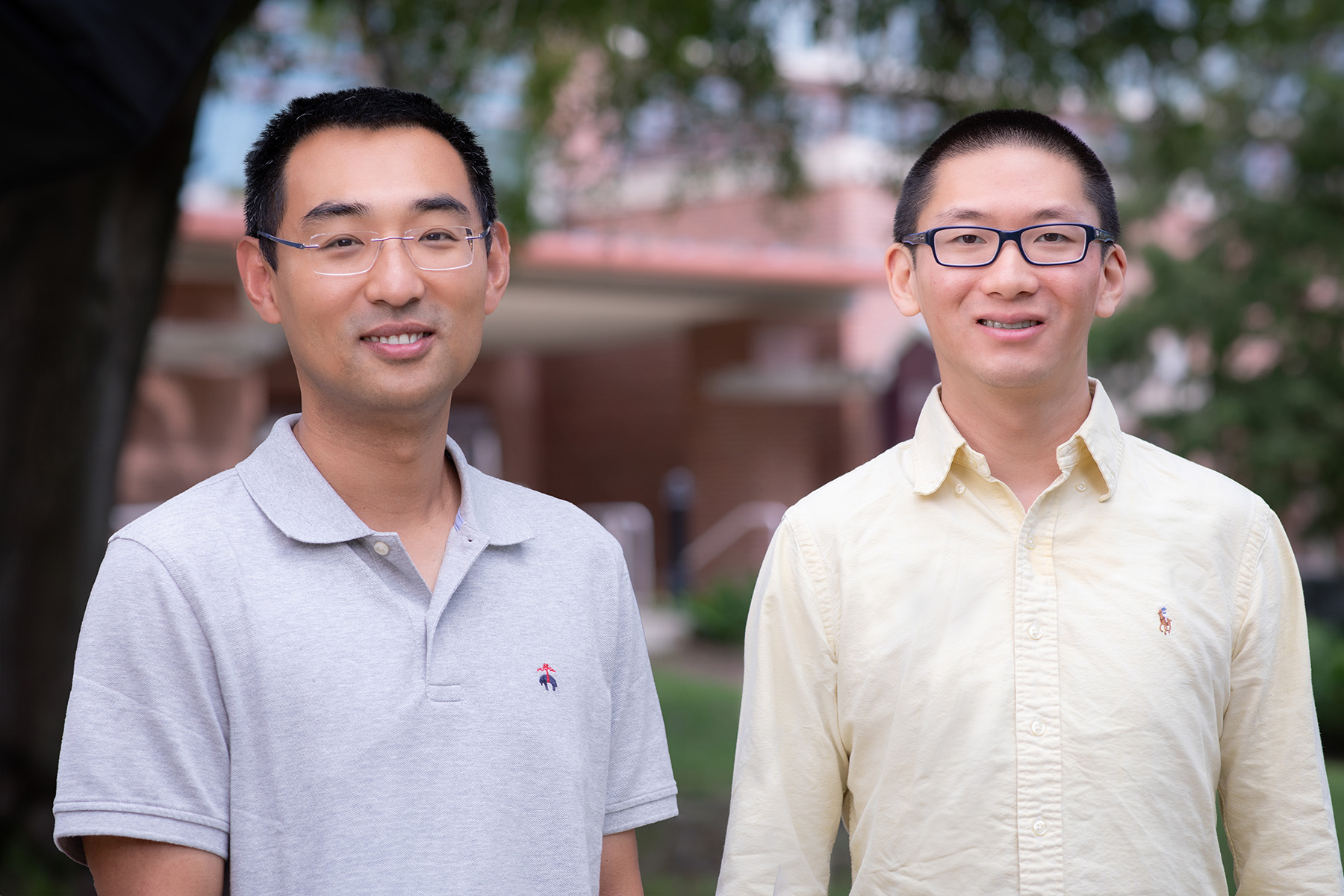
Two Florida State University researchers have earned more than $9 million in separate grants from the U.S. Department of Energy to develop foundation models for artificial intelligence that benefit science.
Feng Bao, the Timothy Gannon Endowed Associate Professor in the Department of Mathematics, and Zecheng Zhang, assistant professor of mathematics, will use their grants over the next three years to develop privacy-preserving and energy-efficient AI models that tackle a range of public-facing climate issues and contribute to the preservation of collected green energy such as wind, wave and solar power. FSU is the only institution to be awarded multiple grants for this initiative and earned two of 11 grants awarded.
“We’re looking to solve real problems that scientists and the general public are facing,” Bao said. “By creating foundation models, which are machine learning or deep learning models that can be used across a wide range of applications because they’re trained on broad data, we’re building a key component of AI and can assist scientists in a number of ways.”
Over the next three years Bao and Zhang will work with their respective teams alongside environmental scientists, climate scientists, computer scientists and other researchers to develop models that can be scaled for use in supercomputers — which can further optimize the models — at U.S. national laboratories including Oak Ridge National Laboratory.
“While one model may not address every issue we’re trying to fix, we can create various foundation models that, when given a new problem and some retraining, can quickly adapt to solve new problems,” Zhang said. “A big part of math’s role in AI is determining how much data a model needs in order to solve a problem.”
Existing AI systems have tools to predict weather events, map deforestation, track icebergs and their melt rates, identify pollution and more. Bao’s $5.4 million project, titled “DyGenAI: Dynamic Generative Artificial Intelligence for Prediction and Control of High-Dimensional Nonlinear Complex Systems,” will be programmed with massive amounts of observational data and scientific principles to develop models that improve the accuracy of weather event predictions such as hurricane forecasts.
“Progress in AI is inspiring us to imagine faster and more-efficient ways to do science. These research efforts will make scientific AI both more trustworthy and more energy efficient, unlocking its potential to accelerate scientific discovery.”
— Ceren Susut, DOE Associate Director of Science Advanced Scientific Computing Research
Because dynamic models adapt to solve new problems as the models take in new data, they can be programmed to provide predictions for exact geographic locations in a certain set of atmospheric conditions. These models will also be generative, meaning they can estimate unobservable conditions, such as those predicted in impending weather events, based on known data.
“Dynamic generative models allow for fast data processing and the ability to quickly make a decision based on this new data,” Bao said. “For example, if a model predicts a natural disaster like a hurricane based on real-time, local data, both emergency responders and citizens can have more time to prepare. Another model will also be used to inform preparations about securing and storing renewable energy, which is necessary because renewable energy sources are not always available due to weather conditions.”
Zhang’s $4 million project “FedNeMO: Physics-Informed and Energy-Aware Federated Learning of Neural Multi-Operator Learners as Scientific Foundation Models” will process observational data, physical principles and energy principles to develop models that assist researchers working with the Earth’s surface. While Bao’s model will be used by meteorologists to prepare for changing weather, Zhang’s model will be used to predict earthquakes and better investigate the Earth’s structure, including identifying minerals underground.
“By taking in data from sensors all over the world, which measure the Earth’s activity, a model can predict even a potential earthquake,” Zhang said. “I’m also planning to collaborate with scientists from our Department of Earth, Ocean and Atmospheric Science as well as the FAMU-FSU College of Engineering in developing these models.”
Funding for this DOE initiative is directed by the White House’s executive order for the Safe, Secure and Trustworthy Development and Use of Artificial Intelligence, which supports work to develop foundation models for science and privacy-preserving AI technologies.
“Progress in AI is inspiring us to imagine faster and more-efficient ways to do science,” said Ceren Susut, DOE Associate Director of Science for Advanced Scientific Computing Research. “These research efforts will make scientific AI both more trustworthy and more energy efficient, unlocking its potential to accelerate scientific discovery.”
To learn more about research in the Department of Mathematics, visit math.fsu.edu.



